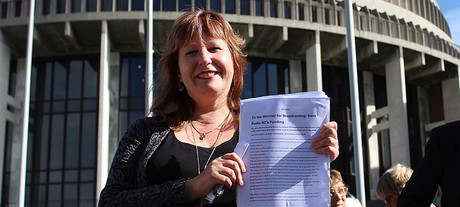Digital revolution mustn't leave people behind

The digital revolution is changing everything, and the New Zealand Government is working hard to ensure those changes are for the benefit of the nation’s citizens, according to Broadcasting, Communications and Digital Media Minister Clare Curran.
During a presentation at IT Professionals NZ last week, Curran said utilisation of big data is giving rise to the development of a wide range of disruptive technologies that will transform the world.
“Self-driving cars, machines that read X-rays and algorithms that respond to customer inquiries are a few of the emerging technologies that utilise the collection of big data,” she said.
“One of the key characteristics of this digital revolution is the exciting but uncomfortable scale and pace of change. We are seeing the transformation of entire systems of production, management and governance because the possibilities of billions of people connected together are unlimited.”
Such rapid and all-encompassing change has the potential to have a significant detrimental impact on large groups of people, so the government plans to keep this front of mind while developing digital services.
“As a government, we want to do things differently — with people’s wellbeing at the heart of everything we do,” Curran said.
“This government is committed to creating a fair and equitable digital economy, where we can all benefit from the opportunities that new technologies provide.”
The digital revolution will be driven by the convergence of technologies such as AI, blockchain and the IoT with data and analytics capabilities, which will require new skills and capabilities. Curran said the government is involved in initiatives such as the tripatriate Future of Work Forum to help the government shape policies to ensure that workers and businesses can adapt.
Meanwhile, the New Zealand Digital Skills Forum — a partnership between industry and various government agencies — is exploring the gaps in digital skills and ways to improve the flow of talent into the tech sector.
The government also recently introduced a new digital curriculum to ensure a longer-term solution to the looming future skills shortage. This is also in line with the government’s major goal of closing the nation’s digital divides by 2020.
Meanwhile, the government is pursuing major digital transformation initiatives to fulfil its imperative to become more innovative, agile and inclusive.
“Transforming the government’s digital approach means having joined-up, people-centric services; it means people being in control of their data; and it means people being able to engage and participate in real time with the government policy process,” Curran said.
“It also has to be easier for small businesses to win government business through a marketplace of government.”
Curran noted that currently New Zealand companies represent 74% of government suppliers through that shared capabilities model, and the government plans to encourage further investment and support to ensure the local industry continues to grow.
“Our goal is to make procurement more transparent and further reduce the barriers for small and local suppliers to provide innovative services to government,” Curran said.
To achieve this goal, the government is developing a new online marketplace for digital procurement — similar to Australia’s Digital Marketplace.
Please follow us and share on Twitter and Facebook. You can also subscribe for FREE to our weekly newsletter and quarterly magazine.
Tackling AI complexity and trust in the Australian public sector
In a sector where much time and energy is spent on repetitive tasks, AI's ability to process...
AI agents: enhancing public sector efficiency and citizen engagement
AI agents have the potential to transform public sector efficiency and elevate citizen engagement...
Australia's 'digital divide' is growing
As the cost-of-living crisis intensifies, research reveals a growing digital divide in Australia,...



